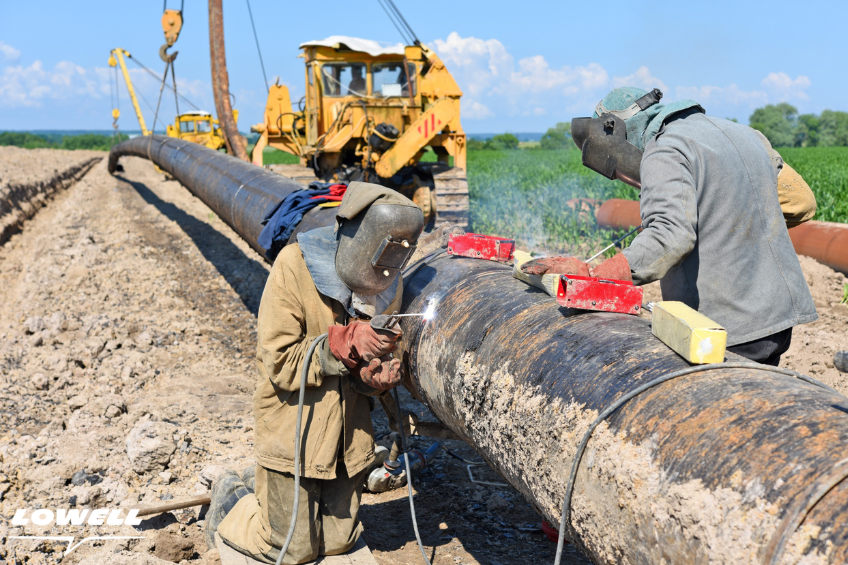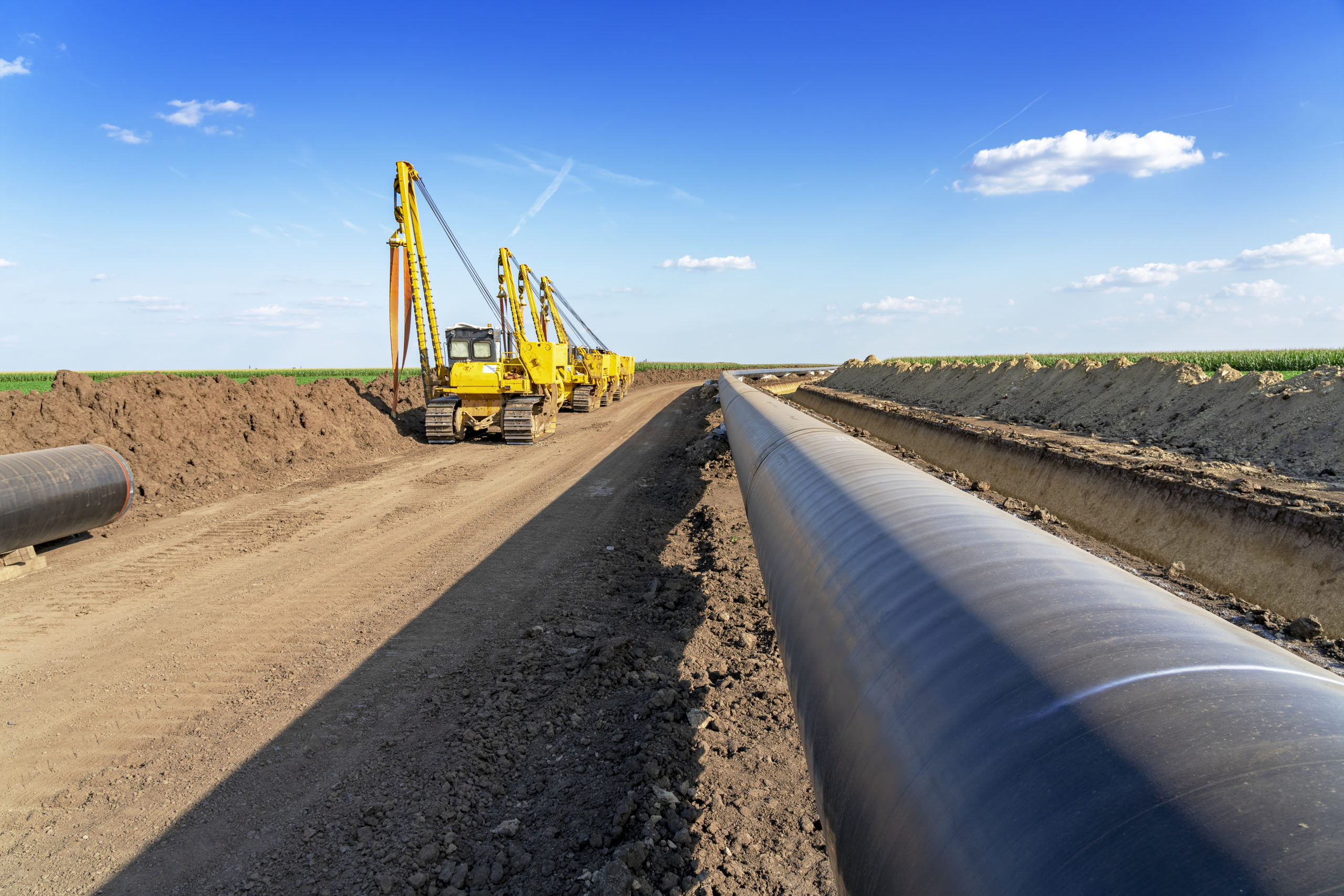A Comprehensive Guide to Comprehending Pipelines and Their Role in Building and construction
Pipelines are necessary elements in construction, serving vital functions in water, gas, and waste administration. Their selection and application can significantly influence a building's performance and safety and security. Numerous products, such as PVC, copper, and PEX, use distinctive benefits fit to details demands (Creek Pipe Company). Comprehending these factors is essential for any construction project. As one explores the details of pipes, the implications for conformity and public health and wellness become significantly obvious
The Importance of Pipes in Building and construction
Pipes function as necessary conduits in building and construction, helping with the activity of water, gas, and waste throughout buildings and framework. Their duty prolongs past mere transport; they are vital for making sure the performance and safety of industrial and domestic settings. Effectively mounted pipes add to the efficient distribution of resources, making it possible for everyday tasks such as food preparation, showering, and heating. In addition, pipes play a critical function in waste management, ensuring that sewer and wastewater are properly removed from living spaces.The significance of pipes is additionally reflected in their effect on public health and wellness. Damaged or poor piping systems can lead to contamination and harmful problems, making quality products and installment techniques critical. Furthermore, pipes should conform with different building regulations and guidelines, which are created to secure both passengers and the atmosphere. Consequently, the relevance of pipes in building encompasses both practical capability and vital wellness factors to consider.
Sorts Of Pipes Used in Building Tasks
Different sorts of pipelines play a substantial function in building tasks, each created to fulfill details requirements and applications. Among one of the most frequently used pipe types are PVC, which is immune and lightweight to rust, making it excellent for drain and air vent systems. CPVC pipes, comparable to PVC, can hold up against greater temperatures, usually used in warm water systems. Copper pipes are known for their resilience and dependability, often used in pipes and heating applications. Galvanized steel pipes, while less typical today, were as soon as a standard for supply of water lines as a result of their strength. In Addition, PEX (cross-linked polyethylene) pipes are gaining popularity for household plumbing because of their flexibility and resistance to scaling and chlorine. Cast iron pipes are favored for their sound-dampening buildings, commonly made use of in waste and dirt systems. Each pipe type serves unique functions, making sure effective operation in building jobs.
Usual Products for Piping and Their Quality
In building and construction, the choice of pipe materials is essential for ensuring sturdiness and performance. Steel pipes use strength and resistance to high pressures, while plastic pipes provide lightweight and corrosion-resistant choices. Compound pipelines incorporate the advantages of both materials, making them functional alternatives for numerous applications.
Steel Pipe Options
Metal pipelines are indispensable parts in building and construction, supplying a range of choices that accommodate different applications and environmental problems. The most common products consist of steel, copper, and cast iron. Steel pipelines are recognized for their toughness and longevity, making them ideal for high-pressure applications. Copper pipelines are preferred for their corrosion resistance and antimicrobial residential or commercial properties, frequently utilized in plumbing systems. Cast iron pipes supply outstanding sound insulation and are ideal for waste and water drainage systems. Each metal kind has unique advantages; for instance, galvanized steel can withstand corrosion, while stainless steel offers superior deterioration resistance. Choosing the proper metal pipe relies on aspects such as cost, environmental direct exposure, and the particular requirements of the building job.

Plastic Pipeline Advantages
Plastic pipes have acquired popularity in building because of their lightweight nature and convenience. These pipes, made from products such as PVC, CPVC, and PE, deal exceptional resistance to corrosion and chemical damage, making them ideal for various applications. Their simplicity of installation additional boosts their appeal, as they can be cut and joined without unique tools. Furthermore, plastic pipelines are generally much more affordable contrasted to steel alternatives, adding to lower general project costs. Their smooth indoor surface areas lower friction and boost flow rates, while insulation homes help preserve temperature level control in pipes systems - Creek Pipe Company LLC. With a large range of sizes and configurations available, plastic pipelines efficiently meet the diverse demands of modern-day construction jobs
Compound Pipe Characteristics
Composite pipes combine different materials to leverage their private toughness, resulting in enhanced performance and durability. Usually, these pipes consist of layers that may include porcelains, steels, and plastics, each contributing distinct properties. For example, the internal layer may be made from a corrosion-resistant product, while the outer layer provides toughness and influence resistance. This mix permits composite pipes to endure severe temperature levels and stress, making them ideal for a large range of applications, including supply of water and industrial processes. In addition, composite pipelines are typically lighter than conventional products, promoting much easier handling and installation. Their convenience and versatility to different environments make them a recommended selection in modern building and construction tasks, ensuring long life and efficiency in liquid transport systems.
Applications of Water Lines in Pipes Systems

Electrical Avenues: The Function of Piping in Electrical wiring
In modern-day building, electric channels play an essential role in guaranteeing the risk-free and efficient directing of electrical circuitry throughout structures. These pipes supply a safety path for electric wires, securing them from physical damages and ecological factors. click here to read Numerous products, such as PVC, steel, and flexible channels, are used relying on the particular demands of the installation.Furthermore, conduits help in organizing electrical wiring systems, lowering the threat of electrical hazards like short circuits or fires. They also go to my site help with simpler maintenance and upgrades, as cables can be accessed and changed without significant disruption to the structure.Proper setup of electric channels is crucial for conformity with building ordinance and security laws. This organized strategy not just boosts the durability of the electric system yet additionally adds to the general security and functionality of the building, making electrical conduits essential in contemporary building and construction methods.
Choosing the Right Pipe for Your Project
How can one guarantee the ideal pipe option for a building and construction task? The choice process begins with understanding the details needs of the job, including the sort of liquids being transferred, pressure ratings, and environmental problems. Material options, such as Copper, pvc, and steel, should be evaluated based upon toughness, rust resistance, and thermal properties.Next, one should consider the pipeline's diameter and flow ability to establish efficient procedure. Regulative standards and codes have to likewise be stuck to, as they determine the acceptable products and methods for details applications. Consulting with experts and making use of substantial sources can even more aid in making educated decisions.Finally, assessing the cost-effectiveness of numerous options is essential, stabilizing preliminary expenditures with long-lasting upkeep and replacement prices - Creek Pipe Midland. By meticulously examining these variables, one can confidently choose the most ideal pipe for their building task, guaranteeing both performance and conformity

Maintenance and Evaluation of Water Lines in Building
Proper option of pipes sets the foundation for their long-term performance, making maintenance and inspection important components in building and construction. Normal upkeep guarantees that any kind pop over to this web-site of prospective problems, such as leakages, rust, or blockages, are recognized and dealt with without delay, decreasing costly fixings and task hold-ups. Arranged examinations, consisting of aesthetic assessments and pressure tests, play a vital function in assessing the integrity of pipeline systems.Additionally, keeping an eye on environmental aspects, such as temperature variations and dirt conditions, can assist prepare for deterioration. Making use of sophisticated innovations, such as CCTV for indoor evaluations, can boost the effectiveness of maintenance efforts. It is crucial to document examination findings and maintenance tasks to establish a comprehensive history of the pipeline systems. By focusing on maintenance and evaluation, construction experts can expand the lifespan of their piping systems, ensuring they operate effectively and accurately throughout the task's period.
Frequently Asked Concerns
Just How Do Pipes Impact Energy Effectiveness in Structures?
Pipelines greatly influence power performance in structures by managing home heating and cooling systems. Correct insulation and products reduce power loss, while reliable pipes styles lessen water use, eventually bring about reduced energy usage and operational expenses.
What Laws Govern Pipe Setup in Building And Construction?
Regulations governing pipe installation in building and construction typically include nationwide and regional building codes, pipes codes, and safety criteria. These guarantee conformity with architectural integrity, product specs, and wellness demands, promoting safety and security and efficiency in construction practices.
Can Piping Be Recycled After Usage?
The question of pipeline recyclability is considerable. Many products, such as metal and specific plastics, can be recycled properly. The problem and kind of pipeline influence reusing feasibility, demanding proper analysis before disposal.
Just How Do Climate Condition Impact Pipe Efficiency?
Climate condition greatly influence pipeline performance. Severe temperatures can trigger expansion or contraction, while wetness may lead to corrosion. Furthermore, hefty rainfall can increase dirt stress, affecting stability and total functionality of the piping system.
What Are the Indicators of Pipe Failing to See For?
Signs of pipe failing include leakages, uncommon sounds, discoloration of water, decreased water pressure, and noticeable deterioration. Regular evaluations can aid spot these problems early, stopping expensive repair services and ensuring system capability in the long term. Pipes play a crucial role in waste administration, making sure that sewer and wastewater are successfully gotten rid of from living spaces.The relevance of pipelines is also reflected in their impact on public health. In construction, the choice of pipe materials is crucial for guaranteeing toughness and capability. Steel pipes provide stamina and resistance to high pressures, while plastic pipes provide light-weight and corrosion-resistant choices. Furthermore, pipes are used to remove wastewater, attaching commodes, sinks, and drains to community sewer systems or septic tanks.Different kinds of pipelines, such as PVC, copper, and PEX, are chosen based on aspects like toughness, expense, and particular application requirements. Just how can one guarantee the best pipe option for a building project?